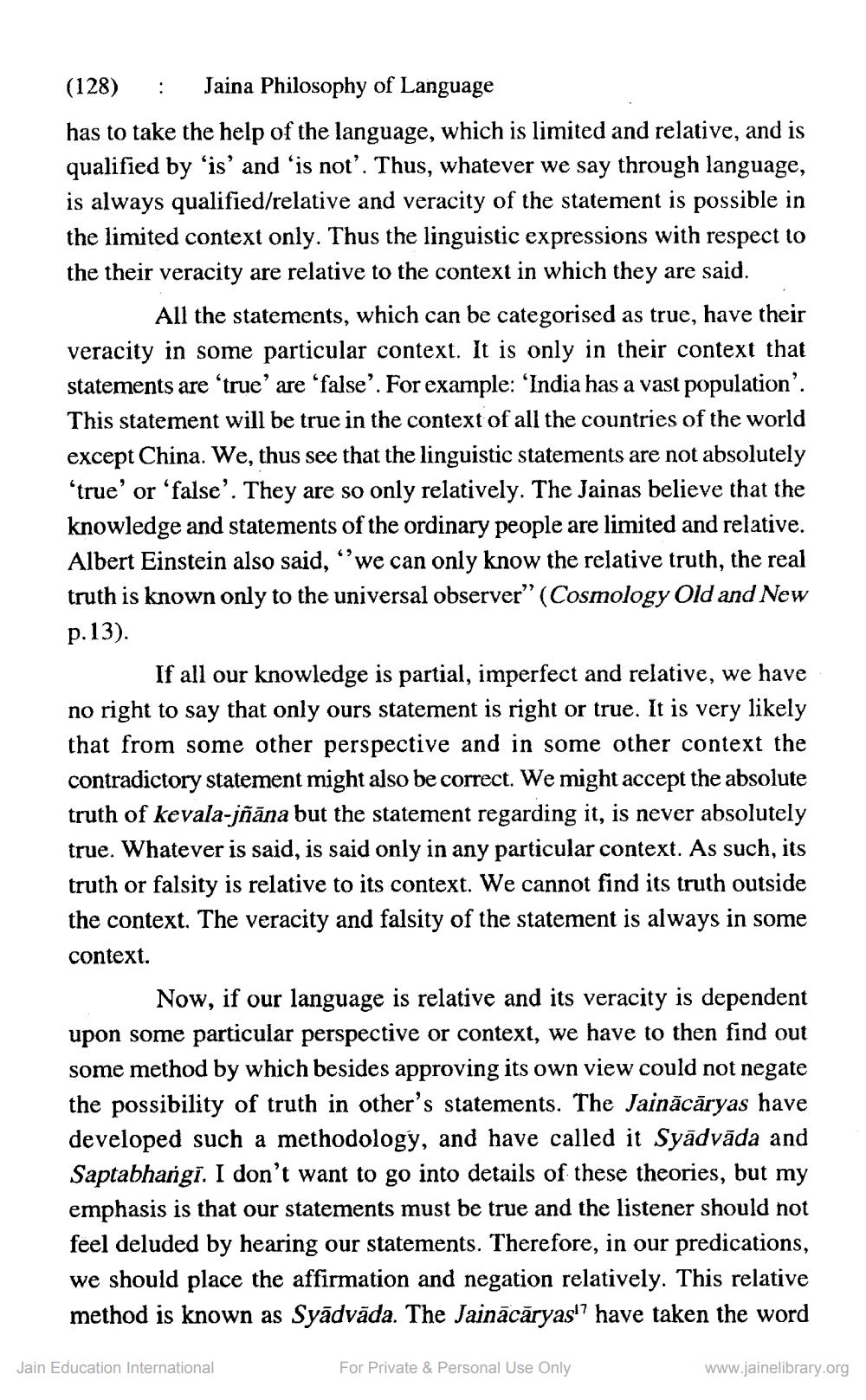________________
(128) : Jaina Philosophy of Language
has to take the help of the language, which is limited and relative, and is qualified by 'is' and 'is not'. Thus, whatever we say through language, is always qualified/relative and veracity of the statement is possible in the limited context only. Thus the linguistic expressions with respect to the their veracity are relative to the context in which they are said.
All the statements, which can be categorised as true, have their veracity in some particular context. It is only in their context that statements are 'true' are 'false'. For example: 'India has a vast population'. This statement will be true in the context of all the countries of the world except China. We, thus see that the linguistic statements are not absolutely 'true' or 'false'. They are so only relatively. The Jainas believe that the knowledge and statements of the ordinary people are limited and relative. Albert Einstein also said, "we can only know the relative truth, the real truth is known only to the universal observer" (Cosmology Old and New p.13).
If all our knowledge is partial, imperfect and relative, we have no right to say that only ours statement is right or true. It is very likely that from some other perspective and in some other context the contradictory statement might also be correct. We might accept the absolute truth of kevala-jñāna but the statement regarding it, is never absolutely true. Whatever is said, is said only in any particular context. As such, its truth or falsity is relative to its context. We cannot find its truth outside the context. The veracity and falsity of the statement is always in some context.
Now, if our language is relative and its veracity is dependent upon some particular perspective or context, we have to then find out some method by which besides approving its own view could not negate the possibility of truth in other's statements. The Jainācāryas have developed such a methodology, and have called it Syadvāda and Saptabhangi. I don't want to go into details of these theories, but my emphasis is that our statements must be true and the listener should not feel deluded by hearing our statements. Therefore, in our predications, we should place the affirmation and negation relatively. This relative method is known as Syādvāda. The Jainācāryas1 have taken the word
Jain Education International
For Private & Personal Use Only
www.jainelibrary.org




